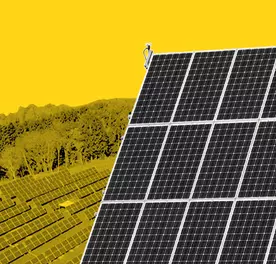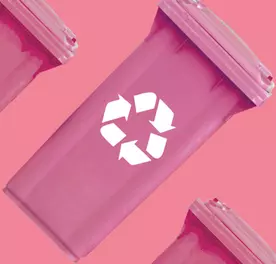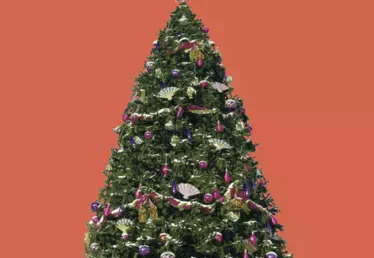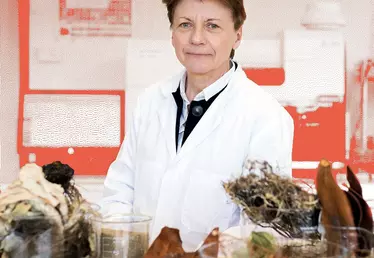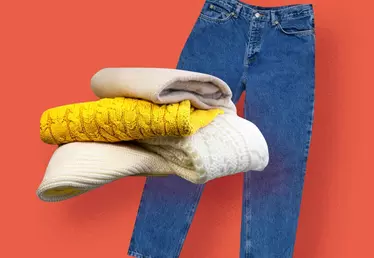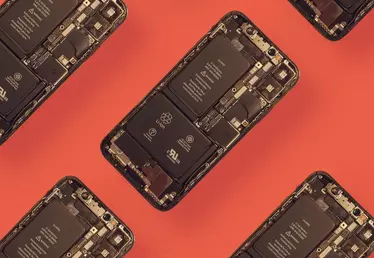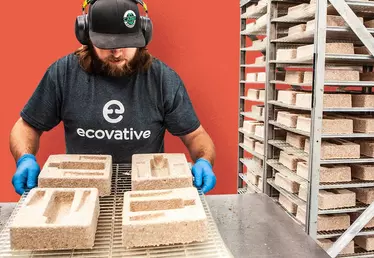

Hero banner custom title
24 hours with a cigarette butt tossed out on the street
6 min
“There’s really nothing positive about a cigarette,” says Cindy Zipf, executive director of Clean Ocean Action and longtime environmental activist. “Not from the planet standpoint and not from a public health standpoint ౼ and the cigarette filter is just a longer lived component of that whole harmful cycle.”
Micro plastic, major problem
If we look at the entire history of cigarettes, the filter is a relatively new component - a trend that took off in the 50s and 60s when studies began clearly linking smoking to lung cancer. Enter the filter. The butt. The stub. These little white cylinders were marketed as a healthier way to smoke. And while it may look like cotton, it is actually made of densely packed cellulose acetate fibers. These fibers, a type of plastic, take upwards of 10 years to decompose. During those years, the plastic leaches into the surrounding environment until it eventually breaks down into hazardous microplastics. Also, the very purpose of a filter is to trap the worst parts of a burning cigarette ౼ so, it follows, that a littered butt also releases those harmful contaminants into the environment as well.
“The soil ecosystem is really quite remarkable,” says Zipf. “So it’s a real shame when that cigarette filter gets ground into the soil and the plastic begins to leach. Worms and other critters don’t benefit from it ౼ basically any where it ends up, it will be unhealthy for whatever lives there.”
Similar to aluminum cans or other types of litter, filters float out to oceans by storm drains, rivers and other waterways. Here, cigarette butts can be harmful or even lethal to marine life. First of all, the filters release chemicals into the water, which has been shown to kill off certain species. Second, many types of marine life and coastal animals ౼ from birds to fish ౼ often mistake the filters for food and ingest the chemical-drenched plastic. In fact, according to the National Cancer Institute, cigarettes contain more than 700 chemicals, 69 of which have been identified as carcinogens. “It’s hard to imagine anything that has had such a devastating consequence from a public health perspective and an environmental perspective,” says Zipf.
Old habits die hard
To make matters worse, there is a distinct human behavior linked to cigarettes: littering. “There is something unique about a cigarette,” says Zipf. “People don't feel like it's littering when they flick that butt out their car window or onto the street ౼ even with all the synthetic, highly- contaminated fibers. I've literally had conversations with people about the work I do while they are smoking a cigarette ౼ and they will flick it on the ground and stomp on it!”
“The scope and magnitude of littered filters is just astonishing,” she says. “If we were to add up all the butts that end up in the environment, the numbers would be in the trillions.” More than 4.5 trillion filters a year to be exact, easily earning it the top spot as the world's most littered plastic.
Cleaning up
In an effort to make a dent in this enormous problem, Clean Ocean Action organizes two major beach cleanups each year. In recent years, clean up crews collected roughly 29,000 cigarette filters during two 3-hour shifts. As for the rest of the cigarette butts scattered about the world? The lucky ones get picked up and thrown into a trashcan. From there, Zipf says, they are likely taken to landfills or incinerators. “It’s a dastardly product, but there are efforts to launch recycling programs,” she says.
Closing the loop
One such program has been launched by TerraCycle, a company that works with brands, manufacturers and retailers to fund free recycling programs “to recycle hard-to-recycle waste,” according to its website. Its cigarette butt program, sponsored by Santa Fe Natural Tobacco Company, encourages smokers, businesses or municipalities to collect cigarette butts and ship them free of charge to TerraCycle’s sorting facility. The tobacco and paper are composted and the filter is cleaned, melted, and eventually made into recycled plastic lumber, which can be used to build benches, tables and even playground equipment.
In India, entrepreneur Naman Gupta put his own spin on recycling used filters. As he walked around his hometown, Noida, a small town near New Delhi, he saw cigarette butts everywhere ౼ scattered along the roadsides, in corporate spaces, smoking rooms, etc. Once he began looking for a solution, he quickly realized that very few people have tried to solve the problem of cigarette waste. With roughly 120 million smokers in India, he jumped at the opportunity to make a difference and created Code Effort Private Limited. He employs teams all over the country who pick up used cigarette filters collected in the company’s strategically placed receptacles.
According to Gupta, 100 billion cigarettes are sold each year in India, generating more than 26,000 tons of cigarette butts.
Gupta says his end-to-end, closed loop process recycles 99.9% of the cigarette butts he collects ౼ more over the company’s production is carbon neutral, ISO certified and in compliance with international standards. The company produces three main products. First, it turns loose tobacco into compost, which is sold to local nurseries. Second, it breaks down cigarette paper, mixes it with essential oils and transforms the paste into sheets of paper that can be burned to repel mosquitos. Lastly, it recycles the cellulose acetate into hard plastic products, such as buttons or combs, and soft plastics used to fill mattresses and pillows.
“In the coming years we’re going to see a lot of problems related to waste as a whole. It’s time for us to consider waste as a resource, but also to manage our waste responsibly and reduce our consumption.”
It’s all about the mindset
“I want to be hopeful,” Zipf says as she talks about the future of littering and waste. But short of having the entire world cut down or quit smoking, the only real solution lies in changing mindsets.
“Cigarette butts are ubiquitous, you could go to any continent anywhere and you’ll find a cigarette filter on the ground. People need to think, to have a mindfulness about how they treat the earth, their environment, their community. This Planet is bearing the brunt of very unsustainable behavior. But, if we decide to do something as a species, we can undo the damage that's been done ౼ we just need to commit and create a unified effort to truly solve the problem.”

